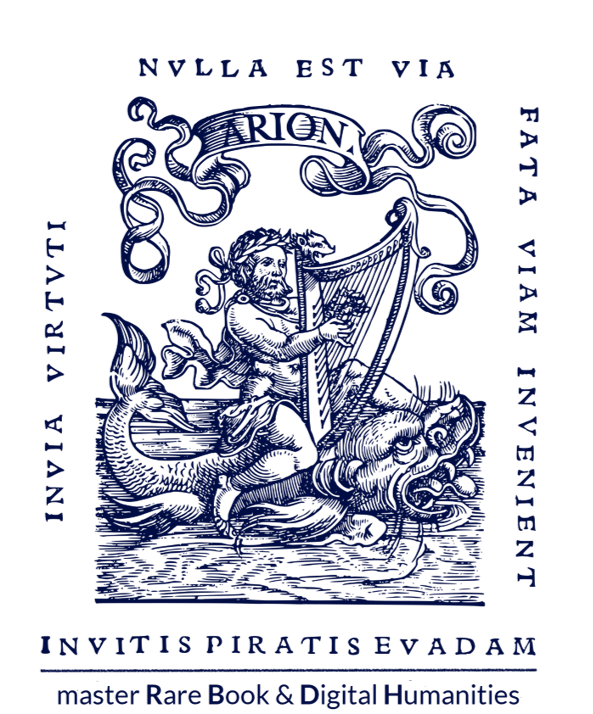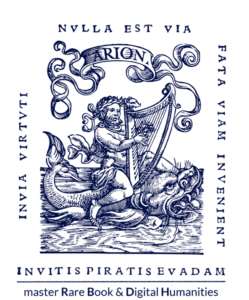This world is a book of which we turn a page at every step, wrote famous French poet Alphonse de Lamartine in Voyage en Orient. Through books, one may visit and travel the world. Yesterday’s world, today’s world, and tomorrow’s. How fitting it is, then, to study books with a group of fellow students coming from all over the world.
My name is Alister Aldridge. I’m a French student and have a master’s degree in 18th-century British political and constitutional history.
While I was completing my degree, I had to consider my options for the coming years. Teaching was then out of the picture for my future; however, I learned that my university was offering a very different master’s program. Studying “rare books” while exploring current issues relating to the preservation and the spread of such documents seemed like a brilliant and fitting idea. Books have always accompanied me one way or another. Be it at university with textbooks and monographs or in my life outside the academic environment.
When researching my thesis, I didn’t work much on what we call rare books. Instead, I studied old papers, 18th-century diplomatic correspondence – to paraphrase one of our professors. I had the opportunity to come across and study several fantastic documents besides the primary sources I used. For example, the manuscript of Robert Fulke Greville’s diary digitized by the British Royal Library, which narrates the dark days of King George III’s illness, or The Rolliad, a 1784-85 satire book first published as a series in the Morning Herald newspaper.
Outside the university, I am also a keen genealogist amateur. I have been working on my family history – and that of others as well when asked – for around ten years. By now, I have “constructed” a family tree of around 2,000 people from four different countries (France, the UK, and the actual Belgium and Netherlands). The furthest back I could go is a direct ancestor born in a small French village between 1575 and 1580. However, this remains a hobby.
My academic experience gave me a glimpse of the world of rare books as a field of research. Thenceforth, it seemed to me that pursuing a degree allying rare books and digital humanities was a natural path. By now, I and my fellow students are diving into the study of Latin, Greek, bibliography, book culture, markup languages, and image processing. We are learning how to use the softwares Gimp and Scribus, what ἄνθρωπος means as well as who were Aldus Manutius and Elizabeth Eisenstein. Books and computers, the past and the present, the familiar and the new are what characterize the Rare Book and Digital Humanities master program.

